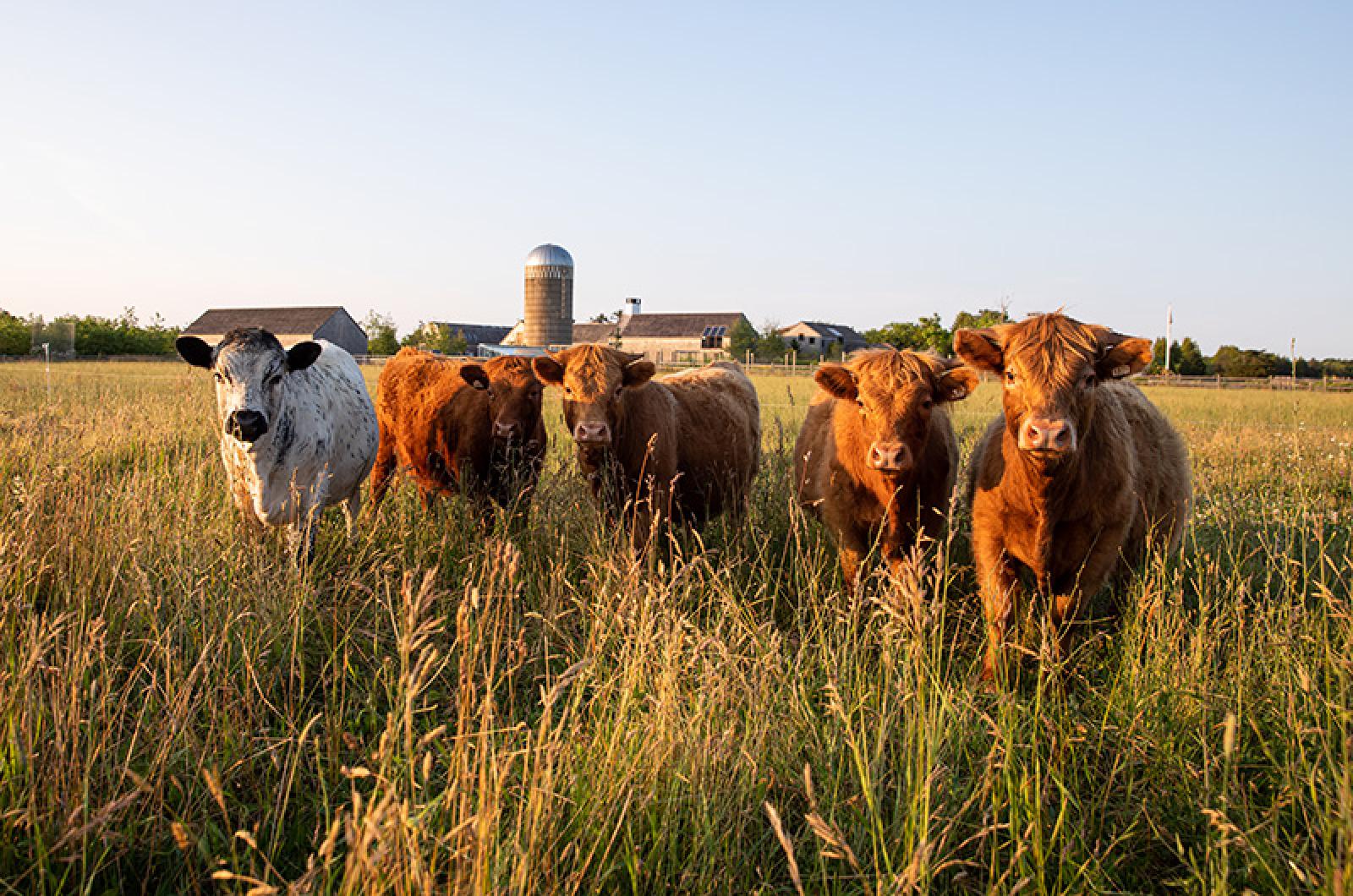Slough Farm in Edgartown has joined the growing ranks of the Martha’s Vineyard food equity network this summer — converting locally grown and harvested produce, meat and seafood to nutritious meals that can be distributed to Islanders.
Slough Farm Suppers was launched in response to the pandemic and the sharp spike in food insecurity rates that has accompanied it. The supper program was inspired by and modeled after Island Grown Initiative’s prepared foods program, whose tagline is “getting the right food to the right people at the right time,” said Sophie Jones, the new program director at Slough Farm.
“The right food, right people, right time, and to that, I would also like to add right source,” Sophie told the Gazette in a recent interview. “When I first got here [in March], we had a lot of conversations around what we could do . . . and the answer was prepared foods,” Sophie said, citing an acute need for premade meals in the Island’s elderly community and in areas without accessible kitchens. “It’s a niche that everyone is working towards, but, especially in the context of a pandemic, needed more attention.”
With the added bolster of financial backing from private donors, the supper program has also been able to support local sellers, farmers and fishermen whose businesses have taken a hit in the pandemic.
“We’re trying to support people on every rung of the food system — from people working in the fields and out on boats, to people who would be line cooks in a kitchen to restaurant owners,” Sophie said. “We want to help as many people as possible.”
Situated in the rural coastal perimeters of Edgartown and named for Slough Cove in the Edgartown Great Pond (Slough is pronounced like plow), the nonprofit farm was founded in 2016 with a stated mission of education, regenerative agriculture and support for local farmers and food equity organizations.
The farm is based on a 3.1-acre parcel of the former Herring Creek Farm that was purchased by Slough Farm Foundation September 2016 for $3.5 million. A nonprofit tax filing from 2018 lists Christopher Terry as the foundation’s chief administrative officer and Paul Singer and Terry Kassel as directors.
The business model for Slough Farm Suppers is simple. The farm buys seafood, meat and produce from Island vendors at cost and assembles it into single-serving meals with a team of local chefs. The farm then distributes the meals through the network of social services and food equity programs on the Island, donating to organizations like the Island Food Pantry, Martha’s Vineyard Community Services and the Island Councils on Aging.
With a rotating and seasonally dependent menu, the program has debuted recipes like chowder made with Cottage City oysters and lemony chickpea soup with fennel. With the arrival of August, Sophie said boxes of zucchini and tomato-based soups are on the horizon.
Since launching this summer at the Camp Jabberwocky kitchen, the supper program has supplied Islanders with 500 meals a week — roughly 2,800 meals total. And that’s not counting the additional 100 meals made every week off-premises through the program’s partnership with the Scottish Bakehouse and V. Jaime Hamlin catering company.
And while the pilot program has been a success, both Sophie and Slough Farm managers Julie and Laine Scott said it is only one piece of the farm’s larger mission of giving back.
Most consistently, this means donating all of the farm’s food not used in programming on-site to organizations and individuals in need — from small donations to neighbors, to larger-scale ones at IGI’s mobile market, the Food Pantry, the West Tisbury lunch program, and a handful of others.
“We farm the same way our methods are the same as a commercial, but the goal is not to turn a profit,” said Julie, of the farm’s mission. “The goal is to provide as much food for donation as we can.” Last year alone, the farm donated 2,229 pounds of meat and produce and 150 dozen eggs.
Since the pandemic outbreak, the mission has become more pronounced. Beyond the supper program, the farm has continued its support of the Martha’s Vineyard Agricultural Society’s farmer and homestead grant program, and awarding money to IGI to expand its growing capabilities this season, in order to meet high pandemic demand. The farm is also donating food to the Community Services Family Center’s food pantry and activity kits, as part of its partnership with the organization.
For all its challenges, the pandemic has allowed the farm to think critically about how to give back, without duplicating the efforts of similar organizations — taking the time to “see where we fit,” Julie said.
Looking ahead, the farm hopes to put what they’ve learned in the pandemic to good use, ensuring high-impact collaboration between organizations on the Island. “I have those same goals for farming,” said Julie. “We want to make it so farmers can always be bettering how they’re working with each other.”
Sophie agreed: “It’s great to get to work so hard on [the program] this summer. But our work in food equity will continue long after the pandemic is over.”







Comments
Comment policy »